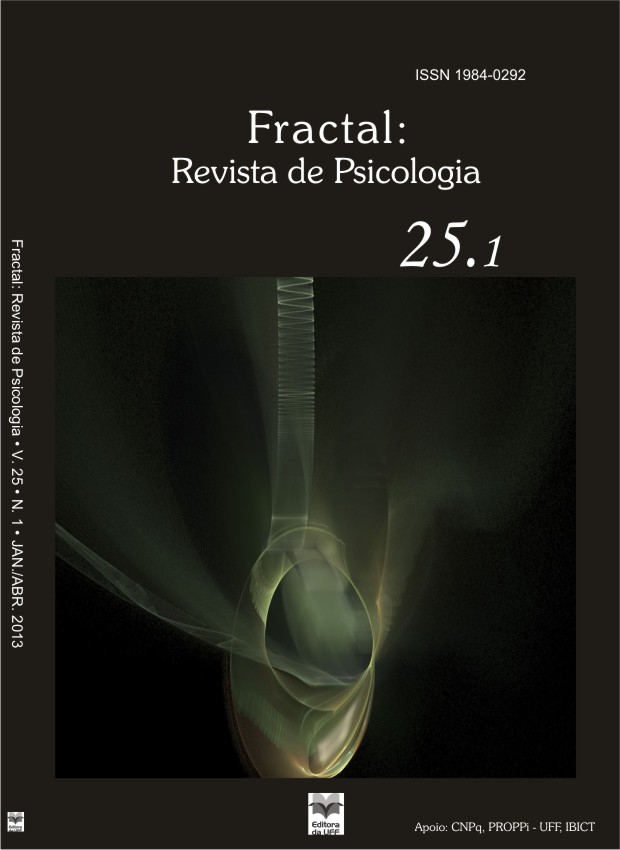The work of Eros and Thanatos in the social regulation
Keywords:
psychossociology, organizational social responsibility, system management, Eros and Thanatos, social regulationAbstract
This study aims to discuss the work of Eros and Thanatos in the context of social regulation, where the organizational social responsibility is commonly identified as being a management system capable of minimizing the negative effects of capitalism. The fieldwork indicated a fallacy between discourse and practices of responsibility. Qualitative data from three organizations were used and categorized based on the logic of social representations. It has been identified that the organizational social responsibility is in the service of Eros, being a possible way to beat the anguish of organizational death. However, that model is vulnerable to the work of Thanatos. It has been concluded that the perception of the work of death that is noticeable in the institutional dynamics may favor its confrontation and also find ways out to the necrosis in the social tissue which work organizations are also part.Downloads
References
ABRAMIDES, M.; CABRAL, M. Regime de acumulação flexível e saúde do trabalhador. São Paulo em Perspectiva, São Paulo, v. 17, n. 1, p. 3-10, 2003. Disponível em: <http://dx.doi.org/10.1590/S0102-88392003000100002>. Acesso em: 13 abr. 2010.
ANTUNES, R. Adeus ao Trabalho? Ensaio sobre as metamorfoses e a centralidade do mundo do trabalho. 5. ed. Campinas: Cortez, 1998.
BLACKBURN, R. O Vampiro da Razão: um ensaio de filosofia da história. São Paulo: UNESP, 1992.
BRANDÃO, J. Mitologia Grega. 6. ed. Petrópolis: Vozes, 1995. v. 3.
CAPPELLIN, P. A Modernização de Valores nas Relações Contratuais: a ética de reparação antecede o dever da responsabilidade? Antropolítica: Revista Contemporânea de Antropologia e Ciência Política. Niterói, v. 2, n. 1, p. 35-56, 1995.
CHEVALIER, J.; GHEERBRANT, A. Dicionário de Símbolos. 21. ed. Rio de Janeiro: José Olympio, 2007.
DEDECCA, C. Regimes de trabalho, uso do tempo e desigualdade entre homens e mulheres. In: COSTA, A. et al. (Org.). Mercado de trabalho e gênero: comparações internacionais. Rio de Janeiro: FGV, 2008. p. 279-297.
DEJOURS, C. A Banalização da Injustiça Social. Rio de Janeiro: FGV, 1999.
DELUMEAU, J. História do Medo no Ocidente. São Paulo: Companhia das Letras, 2000.
DOMINGOS, M. L. C. Responsabilidade Social Organizacional, Confiança e Capital Social: exploração de um campo obscuro. 2007. Tese (Doutorado em Psicologia Social)__Instituto de Psicologia Social, Universidade do Estado do Rio de Janeiro, Rio de Janeiro, 2007.
ENRIQUEZ, E. O trabalho da Morte nas Instituições. In: KAËS, R. et al. (Org.). A Instituição e as Instituições: estudos psicanalíticos. São Paulo: Casa do Psicólogo, 1991. p. 53-79.
FOUCAULT, M. História da Sexualidade: o uso dos prazeres. 9. ed. Rio de Janeiro: Graal, 2001. v. 2.
FREITAS, M. E. Cultura Organizacional: identidade, sedução e carisma?. Rio de Janeiro: FGV, 1999.
LAPLANCHE, J.; PONTALIS, J. Vocabulário da psicanálise. São Paulo: Martins Fontes, 1992.
LEITE, M. P. Trabalho e sociedade em transformação. Sociologias, Porto Alegre, ano 2, n. 4, p. 66-87, jul./dez. 2000.
LIMONGI-FRANÇA, A. C. Qualidade de Vida no Trabalho: conceitos e práticas nas empresas da sociedade pós-industrial. São Paulo: Atlas, 2003.
LOSICER, E. A Pro-cura da Subjetividade: a organização pede análise. In: DAVEL, E.; VASCONCELOS, J. (Org.). Recursos Humanos e Subjetividade. 3. ed. Petrópolis: Vozes, 2000. p. 68-79.
MARCUSE, H. Eros e Civilização. Rio de Janeiro: J. Zahar, 1968.
MOORE, B. Aspectos morais do crescimento econômico e outros ensaios. Rio de Janeiro: Record, 1999.
ORCHIS, M. et al. Impactos da Responsabilidade Social nos Objetivos e Estratégias Empresariais. In: GARCIA, B. G. et al. Responsabilidade Social nas Empresas: a contribuição das universidades. São Paulo: Fundação Peirópolis, 2002. p. 37-70.
SPOSATI, A. Regulação social tardia: característica das políticas sociais latino-americanas na passagem entre o segundo e terceiro milênio. In: CONGRESO INTERNACIONAL DEL CLAD SOBRE LA REFORMA DEL ESTADO Y DE LA ADMINISTRACIÓN PÚBLICA, 7., 2002, Lisboa, Portugal. UNPAN: Document Management System. Disponível em: <http://unpan1.un.org/intradoc/groups/public/documents/CLAD/clad0044509.pdf>. Acesso em: 21 maio 2010.
TOLDO, M. Responsabilidade Social Empresarial. In: GARCIA, B. G. et al. Responsabilidade social nas empresas: a contribuição das universidades. São Paulo: Fundação Peirópolis, 2002. p. 71-102.
VERNANT, J. P. A Morte nos Olhos: figuração do outro na Grécia Antiga, Ártemis e Gorgó. Rio de Janeiro: J. Zahar, 1988.
VERTHEIN, M.; GOMEZ, C. O território da doença relacionada ao trabalho: o corpo e a medicina nas LER. Physis: Revista de Saúde Coletiva, [S.l.], v. 10, n. 2, p. 101-127, 2000.
Downloads
Published
How to Cite
Issue
Section
License
Authors publishing in this journal agree to the following terms:
- Authors retain copyright and grant the journal the right of first publication, with the work simultaneously licensed under the Creative Commons Attribution License allowing sharing of the work with acknowledgement of authorship of the work and initial publication in this journal.
- Authors are permitted to enter into additional contracts separately for non-exclusive distribution of the version of the work published in this journal (e.g., publishing in an institutional repository or as a book chapter), with acknowledgment of authorship and initial publication in this journal.

This work is licensed under a Creative Commons Attribution 4.0 International License.
To the extent possible under the law, Fractal: Journal of Psychology has waived all copyright and related rights to the Reference Lists in research articles. This work is published in: Brazil.
To the extent possible under law,Fractal: Journal of Psychology has waived all copyright and related or neighboring rights to Reference lists in research articles. This work is published from: Brazil.







